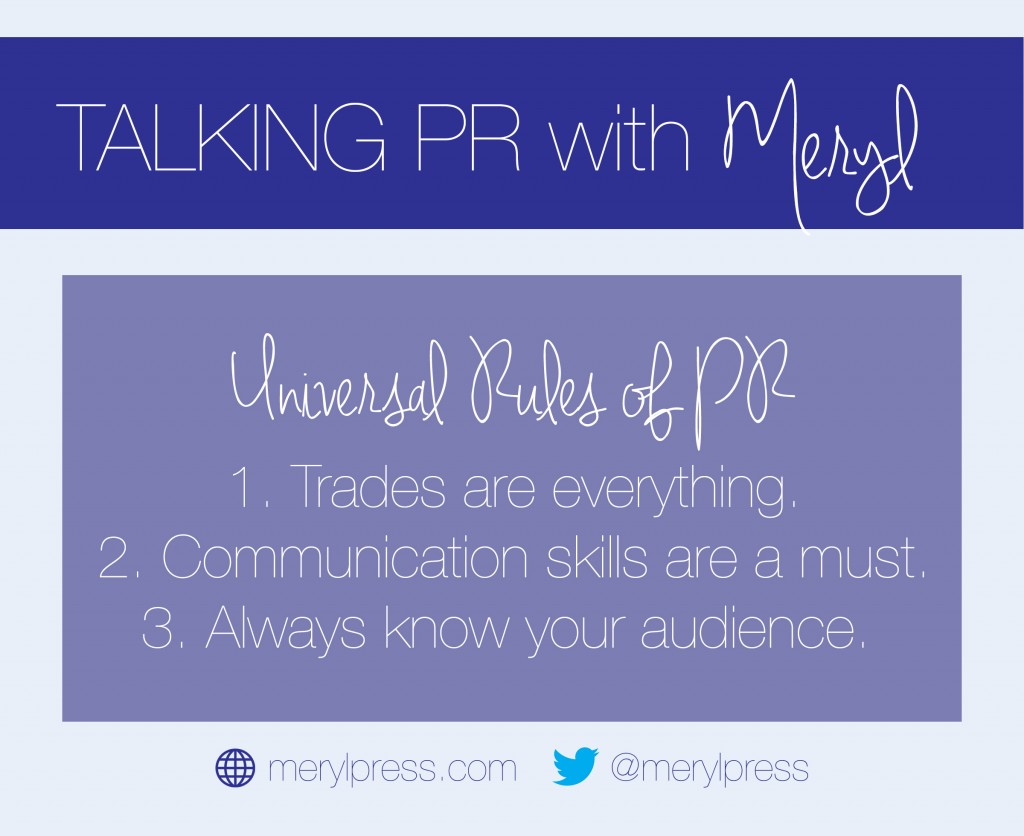Many people do not realize that there are many sectors of the public relations industry – hospitality, consumer, lifestyle, entertainment, food, non-profit, tech, etc. – and each differ in various ways, yet are tied together with common threads.
Before I graduated from the University of Arizona, I interned at several public relations firms. Through my collective internships, I gained experience in restaurant, television, fashion, consumer and talent public relations in both large and small PR agencies.
A month into my pursuit of a graduate degree, I was hired by a major entertainment PR firm in Los Angeles where I had interned for three months prior to being hired. In my first job, I worked full-time as an Assistant Account Executive in the company’s Personalities department and took class in the evenings during the fall, spring and summer semesters.
After nine months in my dream position, I quit my job due to school commitments- the unavailability to work full-time due to class schedules and the approaching pressure of my thesis. Saying goodbye to my coworkers was the hardest, but it was mutually agreed that my Masters degree was the most important.
Today I am working part-time at a Pasadena-based mobile development company who coincidentally has hired my old employer to aid them with the launch of a new mobile application.
Working in both talent representation at a PR agency and in-house at a start-up tech company, I have found that there are both major differences and similarities between the work. Though there are some major differences between working in-house and for an agency, the major similarities of working for both companies can be applied throughout the PR industry. The three major similarities are:
1. Trades are everything
No matter what, keeping up on industry news is of utmost importance in public relations. In the entertainment industry keeping up on Deadline updates, reading the daily newspapers and weeklies were a major part of my job. In the tech industry, I read daily newspapers, Forbes, Wired, CNET and many others every day. As public relations practitioners, we are expected to be the knowledgeable in our industry, and keeping up on trades helps us to become experts and to learn more about the publications and journalists we are targeting for stories.
2. Communication skills are a must
PR practitioners are expected to be expert communicators. In order to be successful in PR, every message must be methodically crafted whether it is verbal or written.
3. Always know your audience
No matter what, your audience should always, always, always be considered. Whether you are writing an email to your A-List client, leading media training for a tech CEO or releasing a statement on behalf of your client, your audience must always be kept in mind.
Meryl Press, MSPR ’15 | merylpress.com



